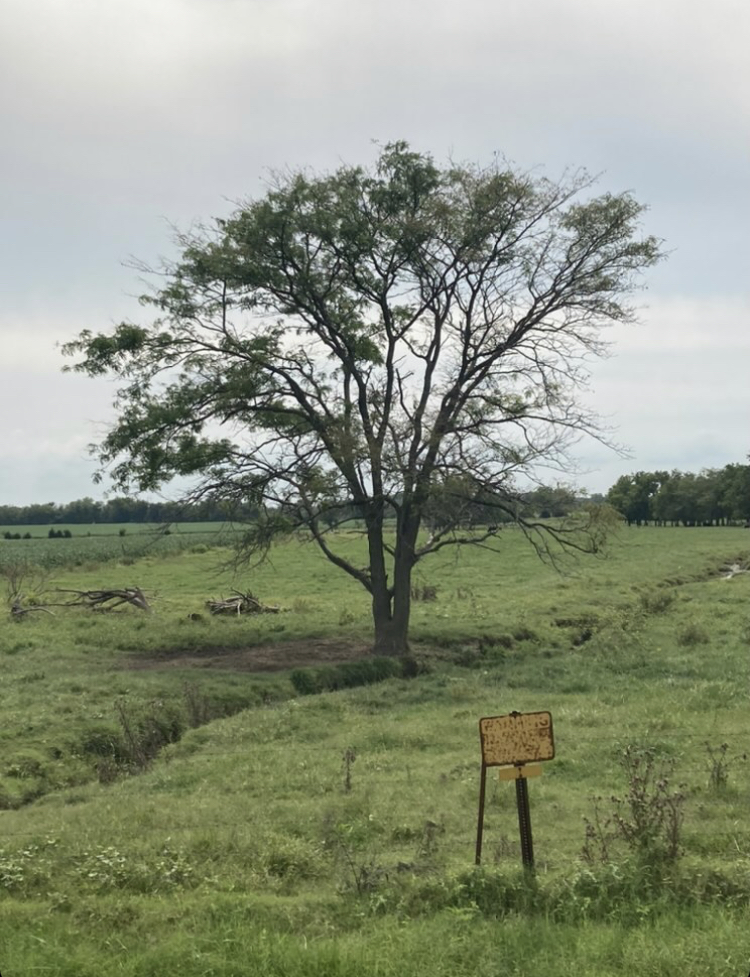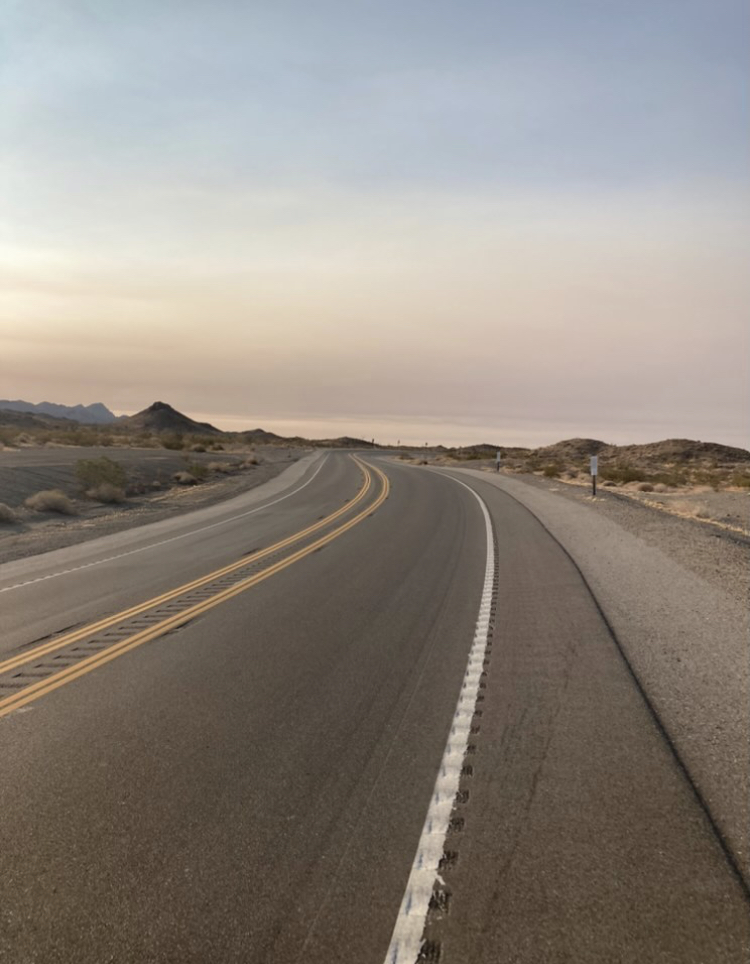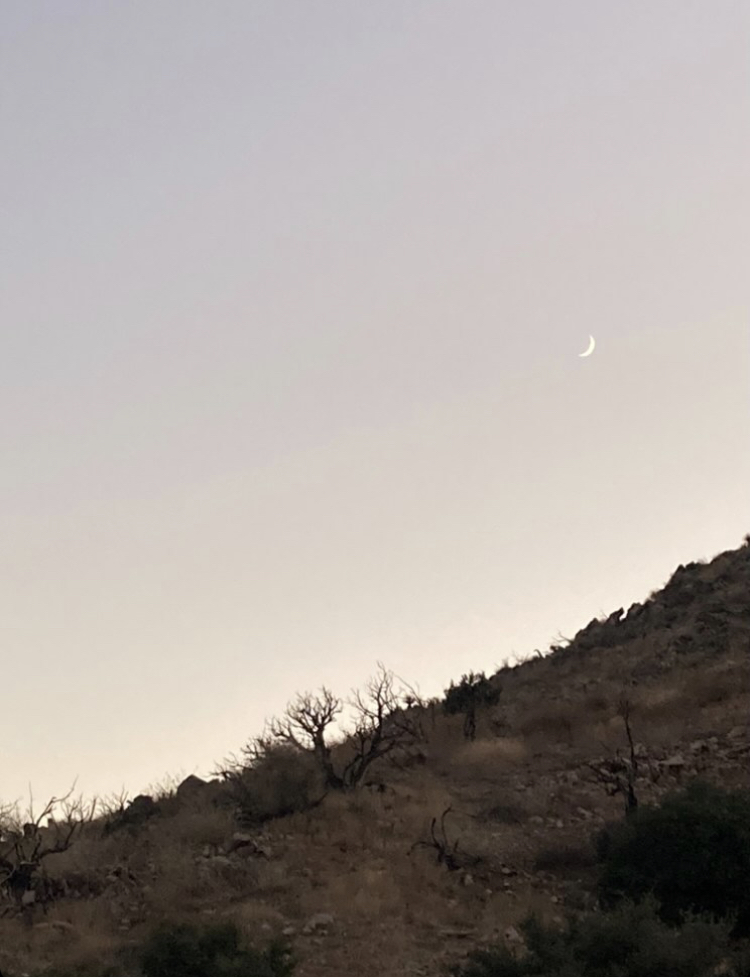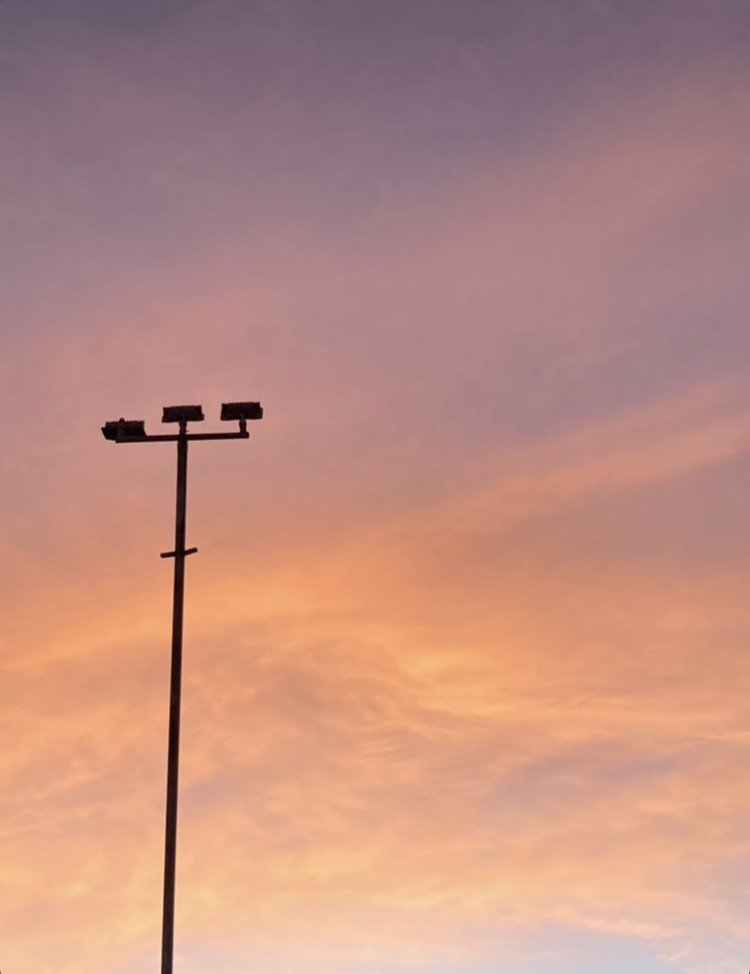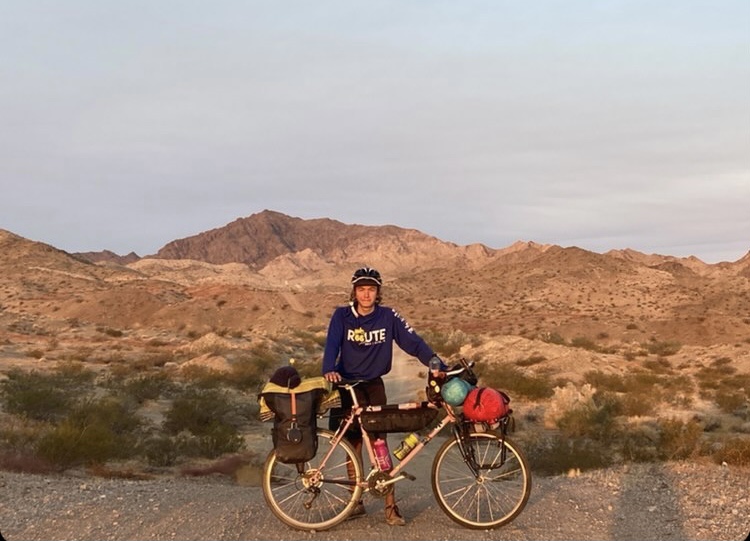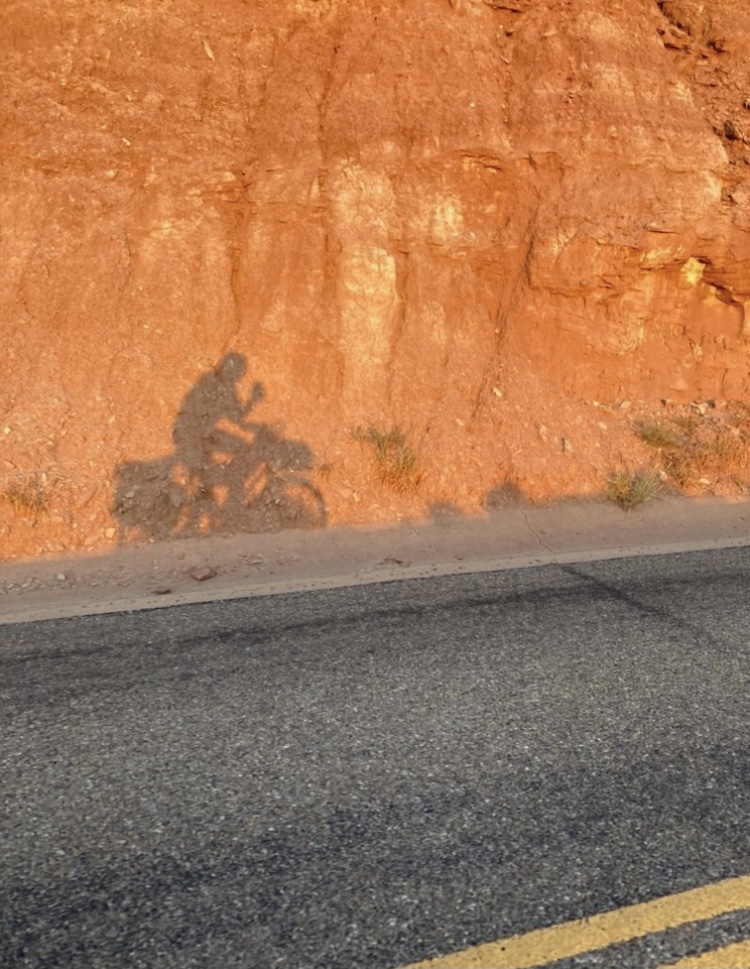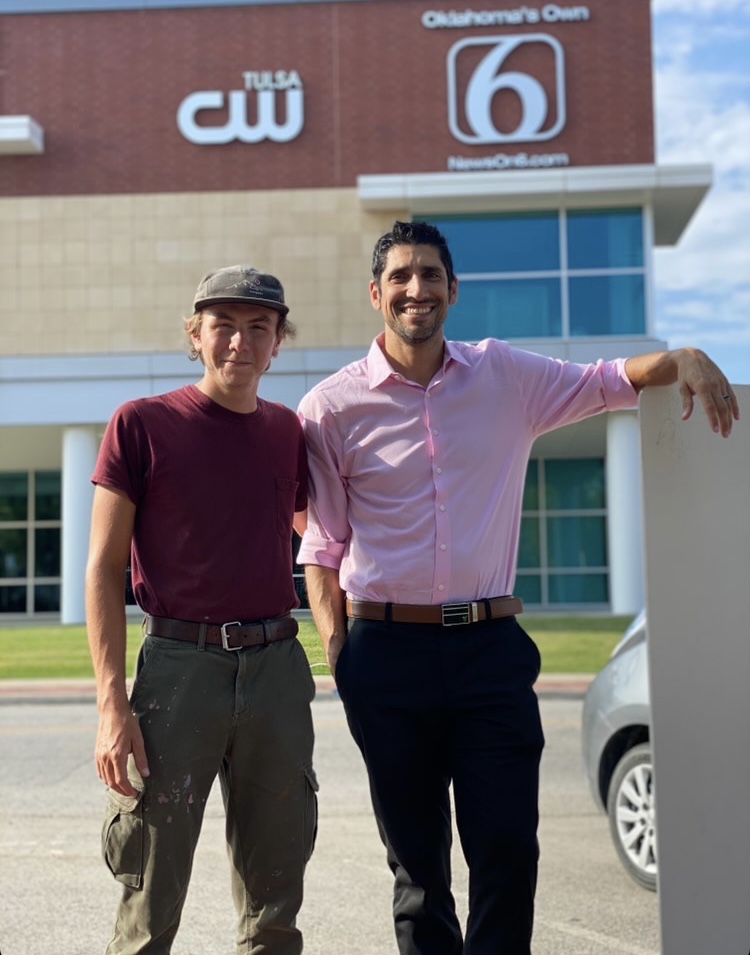Over the course of 62 days, Carter Newcomb traveled cross-country on a bicycle to raise mental health awareness. Newcomb began his bike tour right here in Midland, Michigan, down Michigan’s west coast into Indiana and hopped on Route 66 in Chicago. He followed Route 66 until he reached Los Angeles, California. While he aimed to raise mental health awareness, he also saw this journey as a way to deal with his own mental health struggles. Stemming from a background of watching long-distance travelers hiking trails and biking long routes, Newcomb knew he was interested in the idea of doing a bike tour.
“Growing up, I watched a lot of thru-hikers, which are people that hike the entirety of the Appalachian or Pacific Crest Trails or Continental Divide trail, which are like 2000 mile long trails,” Newcomb said. “I knew that long-distance travel existed and that it involved using the power of your own body.”
Newcomb found that he desperately needed an outlet to channel his mental illnesses. His love for long-distance travel provided that much-needed outlet.
“I was horrendously depressed,” Newcomb said. “I had tried virtually everything in the psychiatric and therapeutic realm to cope with that. I’d been hospitalized twice, and I tried everything. I was stuck in some kind of circular cycle where I was just following the same habits over and over again because I was not changing my environment in a way that would be conducive to my recovery, and so I decided that travel would be a great way to meet new people and see new places.”
The idea of visiting the desert also pulled Newcomb toward using long-distance travel as a coping mechanism. Creating the goal to get to the desert helped him solidify his plan for a bike tour across the country.
“I really, really wanted to see the desert, the southwest,” Newcomb said. “That was something that I had a lot of literal dreams about. For some reason I was just really drawn there and still am. I decided to take route 66 as well, I’d be going down in the desert and I ended in Los Angeles, which is like the oasis of artistic and creative endeavors in the United States.”
The big question is, why a bicycle?
“I chose to do it on a bicycle specifically because I can do stuff at a relatively moderate pace,” Newcomb said. “I can move pretty quickly, but I’m still really close to my environment. I’m still very present. I can stop and check out a cool flower, or you can smell a piece of roadkill. You’re just very in tune with your environment, more so than you would on a motorcycle or whatever, and if I had walked it would have just taken too long for me. I’m not that interested in that. The bike was a great middle ground.”
The beginning of this tour started out pretty rocky for Newcomb.
“The first three weeks of the journey I had very very little money,” Newcomb said. “I was living on less than $10 a day, which sounds like a lot, but when you’re burning 4000 calories a day and you’re burning through inner tubes and tires and stuff, it was like nothing, it’s not enough.”
Newcomb says the worst part of the whole bike tour was the nights.
“The nights, just being alone that long in the dark, out in the middle of nowhere [was hard],” Newcomb said. “You’re just looking up at the stars and there’s nothing between you and infinity, but a little, little bit of gas, and a spin on the earth. You’re just looking at all of it, you’re like, ‘Oh my god,’ you just remember how tiny you are and how vulnerable you are. That wasn’t a bad thing, but [the nights] were definitely hard.”
Though Newcomb set out on this journey alone, he received unexpected help from local cyclists and do-gooders as he passed through each new town he came across.
“[Mike Gillan] totally tuned up my bike and then he kind of organized a lot of other stuff,” Newcomb said. “He got the ball rolling for me getting on the news to share my story, and of course he was a part of Team Suicide Prevention too, which I am now a crew member on for their Race Across America this coming June, and he put me up in a hotel. I mean this guy really put everything on hold to help me out and, and just share my stuff which is pretty amazing.”
Newcomb also received help from Michiganders before he made it to Route 66.
“I was in a state park and I was injured so I decided to take a rest day,” Newcomb said. “I didn’t pay for a campsite because I had no money, so I just kind of cut out a little space for myself and hoped a ranger wouldn’t come bug me. Anyways these guys, they’re also on bikes, they kind of looked at me a few times and then the older guy, the father came over and I explained to them that I was riding my bicycle across the country, and he’s like ‘hey man we’re gonna go out to dinner, we’ll take you out to dinner or ice cream or anything’ so that was really fun. I got a caprese pizza with these guys and they hooked me up there and that was really cool though because they were the first people to really give me a helping hand.”
While Newcomb utilized this trip to bolster his own mental health, the physical journey was also a huge challenge for him to overcome. Newcomb decided to take on this bike tour with minimal planning or forethought.
“I did absolutely zero preparation whatsoever,” Newcomb said. “I’d done a bicycle tour prior, like I did a little Michigan one, but that was only a few days. I hadn’t mapped anything out, I hadn’t saved any money. I had $600 and a bike I pulled out of the trash.”
A large concern for Newcomb was what he would be eating on this trip. He says he did his best to get the calories he needed to keep his body going, but Newcomb had to face the reality of having little money to supply himself with food. That meant making some difficult decisions and eating things that were easily accessible with the limited amount of resources available to him.
“I was a vegetarian [on this tour],” Newcomb said. “I did occasionally eat meat if it was offered to me, like if I went over to somebody’s house for dinner and they made meat, then I would eat the meat. But I ate vegetarian so I probably went through about 35 jars of peanut butter, at least another 20 packs of tortillas, and probably like 30 pounds of apples.”
Newcomb also went through a bag of oranges and ate instant oatmeal for 25 days straight for breakfast in the middle of his bike tour. He slept wherever he could, usually on the side of the road or a nearby park. Any place he could really pitch his tent was good enough for Newcomb. Lots of locals helped him out along the way, some even going as far as to put him up in a hotel or motel. In the end, even though he faced a myriad of challenges, Newcomb wouldn’t trade this experience for anything.
“We always have expectations about things,” Newcomb said. “We create an ideal situation, and obviously that’s not reality, those expectations are really completely mad. But it’s funny because I had a particular vision for the trip, which honestly I can’t even really put into words what it was, but I know I still have that feeling in me, like of what I was expecting, and those expectations were not met, but much different opportunities and visions presented themselves to me. Because I was adaptable and I didn’t hold on that ideal too much I had an incredible trip. I met incredible people and I’ve gotten to hear so many other people’s stories in relation to mental illness and things like that, and help others and now I’m going to be working with Team Suicide Prevention on their Race Across America next year as a crew member. I’m just really happy that I was open minded, and I didn’t hold on to that ideal image because I was given the world basically when I let go of that ideal. I mean I was given so much. I definitely don’t consider this trip a conclusion to my story.”
Through this whole journey, Newcomb learned so much about his own mental illnesses and new ways to cope with them on a daily basis.
“The funny thing is, I haven’t gotten rid of a single one of my neuroses,” Newcomb said. “They haven’t gone anywhere. They’re just as present as they were before. The difference now is I realized that I wasn’t the thing that was going up and down, I was the thing that was watching this process, up and down, up and down, and, with depression and anxiety, your ups and downs tend to be much much much higher and lower. So, that’s the biggest difference is that I don’t identify with a depressive or anxious state anymore, or a joyful or carefree state. I’m just the thing watching it. And that’s been tremendously helpful and healthy for me.”
Newcomb fulfilled a dream with this bike tour and he couldn’t be happier having accomplished this goal. Newcomb encourages people to do the things they dream about. He wants others to feel that accomplishment as well, even if that dream isn’t a cross-country bike tour.
“I mean, everybody has something that they thought of that they’re like, ‘Wow. That would just be incredible to do’,” Newcomb said. “I mean, an amazing thing that’d be so cool to do, but that they’re also terrified of. That’s why they won’t do it because they’re horrified, and rightfully so. Usually, something that’s really cool and really far out there and that has an opportunity for people to grow a tremendous amount is absolutely horrifying. I absolutely recommend you do this thing.”
photos courtesy of Carter Newcomb

